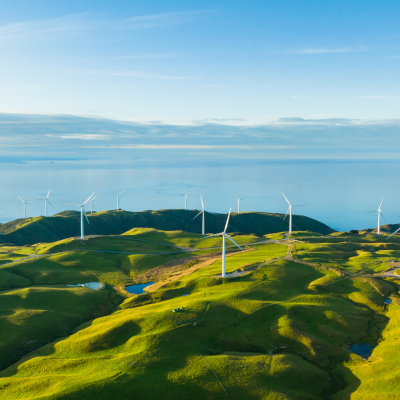Green investment (Investasi Hijau) is becoming an increasingly popular term from year to year in line with the increasing demands for nature conservation globally.
Actually, what is meant by green investment? How has it been implemented in Indonesia so far?
Definition of Green Investment
There is no definitive understanding of green investment. Green investment has a variety of meanings in the context, field and industry attached to it.
However, in general, green investment can be seen as an investing activity that is dedicated to resource conservation, the search for new, renewable sources of energy, clean air and water projects, and other eco-friendly activities.
Green investment thus concentrates on businesses, projects, or business methods that respect the environment. The important thing to remember is that green investments don’t harm the environment since they don’t produce greenhouse gas emissions to be released into the atmosphere.
The following are examples of projects with green investment:
- Sustainable use of natural resources and land
- Pollution prevention and control
- Biodiversity conservation
- Circular economy initiatives
- Renewable energy and natural resources
Legal for Green Investment in Indonesia
In Indonesia, there is a solid legal foundation for adopting green investment. In Indonesia, there are a number of legal bases that govern green investment. Investment Law (UU) Number 25 of 2007 is one of the regulations that govern it.
The first sentence of Article 3 of Law Number 25 of 2007 indicates that investment is carried out in accordance with environmental principles, which is the idea that investment is carried out while still giving consideration to and priority to the conservation and maintenance of the environment. Every investor is obligated to protect the environment, according to Article 16 letter d of the same statute.
There are still a variety of other legal instruments relating to green investment in Indonesia, such as incentive legislation. The Indonesian government has regulated the provision of incentives for green investors, such as taxes, import levies, and import charges.
Green Investment in Indonesia
In many nations, including Indonesia, green investment has become the primary focus of investment. Furthermore, Indonesia has a wealth of natural resources (SDA) in the energy industry. Indonesia, for example, has the most nickel reserves in the world, followed by cobalt, lithium, and manganese.
The establishment and operation of a green industry (green industry) is an application of green investment. Indonesia will develop a green industrial zone in North Kalimantan, according to President Joko Widodo. This green industrial region will be the world’s largest, utilizing green energy to power industry.
Green investment programs have been, are being, and will continue to be implemented in Indonesia. These programs operate differently depending on the organizations, agencies, or other parties in charge of them.
The Indonesian National Development Planning Agency (Bappenas), for example, has developed four main programs related to green investment. The four programs are energy, sustainable landscapes, Special Economic Zones (KEK), and preparation for the Green Climate Fund (GCF).
Energy
In collaboration with the Ministry of Energy and Mineral Resources (ESDM) or Kementerian Energi dan Sumber Daya Mineral (ESDM), this program supports the energy sector, particularly in the renewable energy and energy efficiency sub-sectors. Indonesia is targeting to increase the share of EBT to 23% by 2025.
Now, there are three main focuses of this program. These three are the use of palm oil waste for energy, the use of photovoltaic solar energy systems, and various other bioenergy solutions. Even so, the three focuses above can be expanded based on market demand and interest.
This energy program also includes investment potential in energy conservation and energy efficiency through energy audits in the industrial sector.
Sustainable landscape
As the name implies, this program is landscape based. Landscape here refers to forests, peat and other lands that play an important role in providing various services to society. Working closely with the Ministry of Environment and Forestry (LHK), the program mainstreams green growth principles and tools into development and economic planning within a jurisdiction.
A number of activities in the context of sustainable landscapes include:
Encourage investment in new business models for forest and peatland management.
Building a sustainable supply chain.
Shaping new markets for natural capital and ecosystem services.
Bringing closer between forest managers, managed forests, and forest-dependent communities.
Restoring ecosystems at a landscape scale.
Mobilize forest carbon finance.
Kawasan Ekonomi Khusus (KEK)
The national development plan also includes the development of Special Economic Zones (KEK). In collaboration with the National Council for Special Economic Zones (DN KEK) under the Coordinating Ministry for Economic Affairs, the program is developing an integrated framework of guidelines and policy instruments linking fiscal policy and macro investment in SEZs, which can ultimately drive green investment plans and projects bankable in KEK.
Preparation of the Green Climate Fund (GCF)
The Green Climate Fund (GCF) is a financing mechanism from the United Nations Framework Convention on Climate Change (UNFCCC) which was specifically established to help developing countries, such as Indonesia, to achieve their emission reduction targets.
The GCF has raised USD 10.3 billion recorded in January 2018, and plans to mobilize USD 100 billion annually.
The Fiscal Policy Agency (BKF) has appointed the Global Green Growth Institute (GGGI) as a Delivery Partner to implement the Preparation and Strengthening program (“Preparation Program”) in Indonesia funded by the GCF.
There are five results to be achieved from the Preparation and Strengthening program:
Indonesia’s capacity is strengthened.
Various stakeholders are involved.
Realized Direct Access Entity.
Access to finance (GCF) is improved.
The private sector is involved.
Reference:
Green Growth Bappenas














